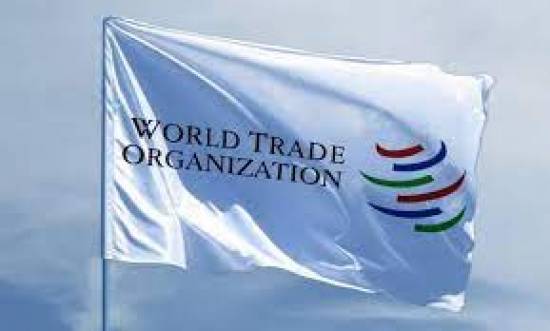Prospects for a quick recovery in world trade have improved amid an expansion more rapid than expected in the second half of last year, with the World Trade Organization (WTO) on Wednesday estimating that trade would increase by 8% this year after falling by 5.3% in 2020.
The strong rebound since mid-last year has helped soften the pandemic's blow for people, businesses and economies, WTO Director-General Ngozi Okonjo‑Iweala said at a press conference in which she called for ramped-up production of vaccines against COVID-19.
"Keeping international markets open will be essential for economies to recover from this crisis, and a rapid, global and equitable vaccine roll-out is a prerequisite for the strong and sustained recovery we all need," said Ngozi.
She forecast that trade growth should slow to 4% in 2022 and that the effects of the pandemic would continue as this pace of expansion would still leave trade below pre-pandemic trends.
However, the relatively positive short-term outlook for global trade is marred by regional disparities, continued weakness in services trade, and lagging vaccination timetables, particularly in developing countries.
Ngozi warned that COVID-19 continued to be the greatest threat to the trade outlook as new waves of infection could easily undermine any hoped-for recovery.
"In this context, a rise in protectionism would be damaging, not just to the global economic growth, but to vaccine production as well," said Ngozi. She added that manufacturing vaccines required inputs from many countries.
She said a leading COVID-19 vaccine manufacturer had said its doses need 280 components sourced from 19 different countries.
"You can see how complicated the supply chain still is," said the WTO chief.
Ngozi said the WTO was planning a meeting in two weeks to include leading vaccine makers to examine supply chain problems relating to export restrictions or other bureaucracy or trade-facilitation issues.
At the WTO, India and South Africa have called for a waiver of Trade and Intellectual Property Rules (TRIPS) for COVID-19 vaccines, but have not yet achieved consensus in the world trade body.
"One of the main objectives of the conference is to have the manufacturers look at the issue of expanding manufacturing capacity for the short, short-to-medium term, and the long term.
"How can we turn existing capacity in emerging markets in developed countries, but also in emerging markets in developing countries, to producing COVID-19 vaccines," said Ngozi, underlining that better distribution of manufacturing facilities in the world was needed.
"And we have to start now," she said.
Ngozi said the world needs a framework for the future of handling the issue of the TRIPS treaty and its waiver.
It needs to reach this goal to "allow developing countries the access they need to vaccines, but also manufacturing capacity, whilst also incentivizing research and development."/aa
Additional Info
- عنوان تمهيدي: World Trade Organization head says COVID-19 poses greatest threat to trade outlook as vaccine production needs ramping up


